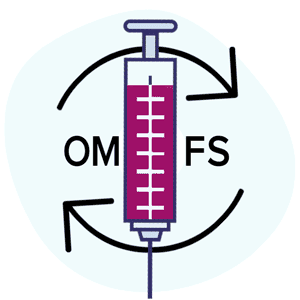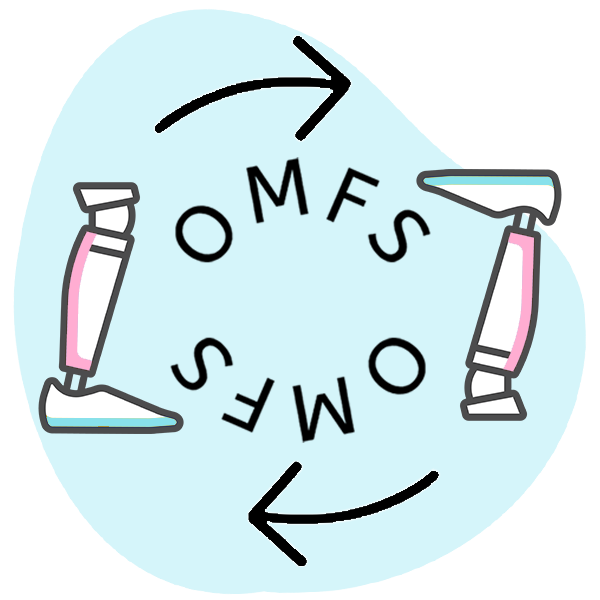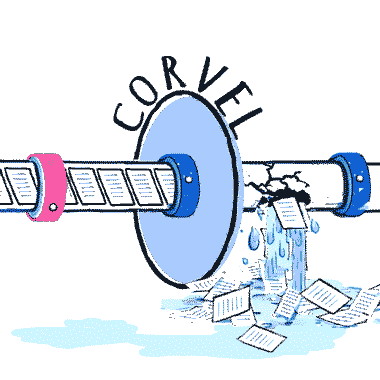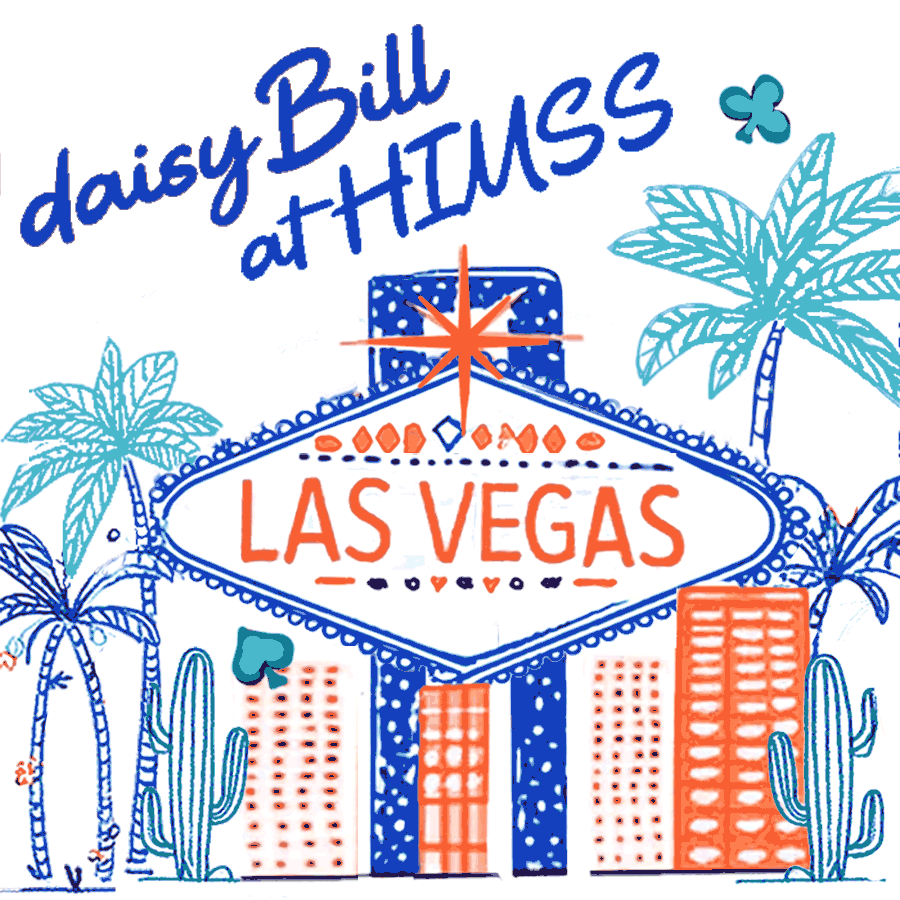CCSF: e-Billing Hero
.gif)
When workers’ comp claims administrators fail to uphold their legal obligations to compliantly accept and respond to providers’ electronic bills (e-bills), daisyNews alerts the provider community.
All too often, claims administrators abdicate their legal responsibility for the actions of their vendors, including clearinghouses, bill review companies, and others. But occasionally, a claims administrator demonstrates that it takes compliance — both its own and its vendors’ — seriously.
For example, the City and County of San Francisco (CCSF).
This self-insured public employer recently encountered an e-billing glitch. Once alerted to the problem, CCSF’s e-billing vendors quickly and efficiently took the necessary steps to remediate the error within two business days.
Why does this story matter?
CCSF’s reliability proves that workers’ comp e-billing works beautifully, making treating injured workers more efficient — especially when claims administrators exhibit leadership and do their part.
CCSF & Vendors’ Rapid Response
Earlier this month, daisyBill data revealed a spike in e-bills for which CCSF failed to return electronic Explanations of Review (e-EORs), a vital component of e-billing. daisyBill immediately contacted CCSF vendors.
As we often remind readers (and the California Division of Workers’ Compensation (DWC)), e-EORs close the loop on the billing cycle, automatically posting payment details to the provider’s e-billing system and saving the practice countless hours of manual administrative work.
Within two working days of hearing from daisyBill, CCSF e-billing vendors Allied Managed Care (AMC) and CompIQ resolved the problem, remitted the backlog of e-EORs, and restored compliance rates to their usual (high) standard.
Throughout the last 10 years, CCSF has consistently demonstrated the ability and willingness to take responsibility for the actions of its vendors, as when CCSF went to bat for providers in response to unsubstantiated Preferred Provider Organization (PPO) discounts applied by one of its vendors.
We were pleasantly unsurprised, then, to see how rapidly CCSF e-billing vendors tackled this e-EOR glitch.
CCSF Spike in e-EOR Non-Compliance
As the deadlines to remit payment and e-EORs for bills sent to CCSF in the last two months of 2023 arrived, our team noticed a drastic uptick in the number of missing e-EORs.
From a typical monthly non-compliance rate between 0% and 3%, CCSF’s November and December 2023 non-compliance rates skyrocketed as high as 85%. The table below shows CCSF’s e-EOR non-compliance rates, broken down by the three CCSF entities to which daisyBill providers send e-bills:
- CCSF claims self-administered by CCSF
- CCSF claims administered by Third-Party Administrator (TPA) Intercare
- San Francisco Municipal Transportation Agency (SFMTA) claims administered by Intercare
CCSF Non-Compliance Data as of January 4, 2024
Month e-Bill Sent |
CCSF e-EOR Missing % |
CCSF Intercare e-EOR Missing % |
SFMTA Intercare e-EOR Missing % |
2023-01 |
0% |
0% |
0% |
2023-02 |
0% |
0% |
0% |
2023-03 |
0% |
0% |
1% |
2023-04 |
0% |
0% |
3% |
2023-05 |
0% |
0% |
2% |
2023-06 |
0% |
1% |
2% |
2023-07 |
2% |
1% |
1% |
2023-08 |
5% |
1% |
7% |
2023-09 |
22% |
2% |
17% |
2023-10 |
3% |
1% |
1% |
2023-11 |
47% |
44% |
46% |
2023-12 |
83% |
60% |
85% |
CCSF, AMC, CompIQ Rally to Fix Problem
Most claims administrators use various vendors to help comply with e-billing requirements, from clearinghouses to bill review services and more.
However, all claims administrators are solely responsible for their own compliance, even when problems lie with outside vendors. As the DWC Electronic Medical Billing and Payment Companion Guide states (emphasis ours):
Billing agents, electronic billing agents, third party administrators, bill review companies, software vendors, data collection agents, and clearinghouses are examples of companies that may have a role in electronic billing. Entities or persons using agents are responsible for the acts or omissions of those agents executed in the performance of services for the entity or person.
daisyBill reported the spike in e-EOR non-compliance to AMC on January 4, 2024. AMC is CCSF’s bill review vendor, which works with bill review software provider CompIQ.
AMC representatives responded quickly and worked with CompIQ on a fix. By the next day, January 5, daisyBill providers received some of the missing e-EORs.
By the following working day, January 8 — just two business days from daisyBill’s first outreach — daisyBill providers had received all of the missing e-EORs, restoring CCSF’s low non-compliance rates, as shown below.
CCSF Non-Compliance Data as of January 9, 2024
Month e-Bill Sent |
CCSF e-EOR Missing % |
CCSF Intercare e-EOR Missing % |
SFMTA Intercare e-EOR Missing % |
2023-01 |
0% |
0% |
0% |
2023-02 |
0% |
0% |
0% |
2023-03 |
0% |
0% |
1% |
2023-04 |
0% |
0% |
3% |
2023-05 |
0% |
0% |
2% |
2023-06 |
0% |
1% |
2% |
2023-07 |
2% |
1% |
1% |
2023-08 |
1% |
1% |
3% |
2023-09 |
14% |
2% |
13% |
2023-10 |
3% |
1% |
1% |
2023-11 |
0% |
0% |
0% |
2023-12 |
1% |
0% |
1% |
For 2023 CCSF e-EOR non-compliance is at an enviable 3% or less across all three divisions, as shown in the table below.
CCSF Division |
CCSF |
CCSF Intercare |
SFMTA Intercare |
e-Bill Submission Total Count 2023 |
7,528 |
3,315 |
4,070 |
e-EOR Missing Total Count 2023 |
150 |
21 |
118 |
e-EOR Missing Rate 2023 |
2% |
1% |
3% |
daisyBill can report that AMC representatives were communicative, transparent, and proactive in confirming that the glitch repair operated as intended.
This is also not the first time CompIQ has proven itself an exemplary vendor for claims administrators who take compliance seriously.
Kudos to CCSF and its vendors for demonstrating how e-billing can function effectively and efficiently. If every claims administrator took compliance this seriously (willingly or as a result of DWC enforcement), providers would be less hesitant to treat injured workers, who would ultimately benefit the most.
daisyBill makes workers’ comp billing easier, faster, and less costly. Request a free demonstration below.
GET A DEMO
DaisyBill provides content as an insightful service to its readers and clients. It does not offer legal advice and cannot guarantee the accuracy or suitability of its content for a particular purpose.




.gif)


At last some good news. Thanks for that.